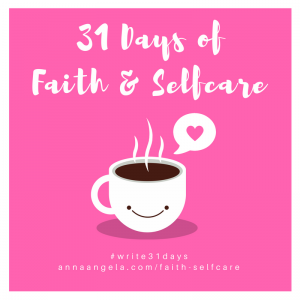Meditation is the act or practice of spending time in quiet thought, contemplation, or reflection for religious purposes or relaxation.
The first time I heard of meditation was in connection to yoga, which someone told me was a weird exercise thing that affects your mind. While at a YMCA one night, my sister was looking at the schedule of classes and there was yoga. She asked what it was and I told her the only thing I knew about it. On a chair next to us was the instructor of the class. So he kindly joined the conversation and told us that yoga is actually not weird at all. He told us – as best he could explain it to a couple of kids – that it has poses and stretches that does help with mind and body.
Then he showed us the berry branch he held on his lap, and proceeded to tell us how a few of his students had a hard time conceiving. So he gave them a few berries (they ate it) and then they were pregnant. “You want to try?” he asked. I refused but my sister did, and then we hightailed it out of there. You can laugh. I do every time I remember it. Glad to say I know better now.
The second time I heard of meditation was at church with an old worship song based on Psalm 1:1-3 (NIV):
1 Blessed is the one
who does not walk in step with the wicked
or stand in the way that sinners take
or sit in the company of mockers,
2 but whose delight is in the law of the Lord,
and who meditates on his law day and night.
3 That person is like a tree planted by streams of water,
which yields its fruit in season
and whose leaf does not wither—
whatever they do prospers.
Then in college, I learned about meditation as a Christian discipline and this is the kind of meditation I want to talk about today. In the book Celebration of Discipline by Richard J. Foster, he give four forms of meditation.
Meditation upon Scripture is “the central reference point to which all other forms of meditation are kept in proper perspective” (p.29). So meditation as a Christian discipline is not merely a way to relax, but it’s a way to connect with God through His Word because our faith grows through the Word of God. We are strengthened through the Word. But meditation upon Scripture is not studying Scripture. It’s allowing the Word of God take root in our hearts and spirits.
Re-collection or Centering Down is second form of meditation and it is “a time to become still, to enter into the recreating silence, to allow the fragmentation of our minds to become centered” (p.30). I think this form is most like the meditation done in yoga. I’ve tried yoga, and we were encouraged to let go or empty our minds of whatever is worrying or troubling us as we breath in and out. But instead of just being empty, in re-collection or centering down, we allow God to fill us. It is entering the presence of God by first leaving behind every care or problem, leaving it at the door or the foot of the cross, and then communing with God, basking in His love.
Meditation upon Creation is the third form, and it “is no infantile pantheism, but a majestic monotheism in which the great Creator of the universe shows us something of his glory through his creation” but instead it is “the discovery of God in his creatures” (p.31). I think this is the easiest form of meditation to practice, at least from the perspective of a city girl. When I visit someplace with more nature than I normally see, it’s easy to have my breathe taken away. It’s easy to be in awe of God, to marvel at the Creator, and how He shows us His majesty through His creations.
Meditation upon the events of our time is the fourth form of meditation and it is “to seek to perceive their significance…to penetrate the inner meaning of events, not to gain power but to gain prophetic perspective” (pp.32-32). Foster suggests practicing this form of meditation with a Bible in one hand and a newspaper in the other. Then we “hold the events of our time before God and ask for prophetic insight to discern where these things lead…[and] ask for guidance for anything we personally should be dong to be salt and light in our decaying and dark world” (p.32).
And I think this form of meditation is what we most need now. How many times have the news scared you? Really made you afraid for your life or the lives of your children. It can be depressing and hopeless. This form of meditation is lifting up the things we have no control over to God, and asking for His wisdom and guidance. What can we personally do to make our circle of influence better? A tiny pebble thrown in the middle of a still lake creates many ripples.
The most obvious form of meditation that fits in well with selfcare would be re-collection or centering down, but every form of meditation actually fits. They are different ways to practice selfcare because they all help us let go of worries and fears and focus on God and enter His loving and peaceful presence.


